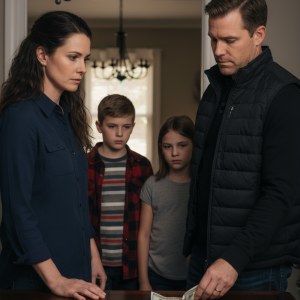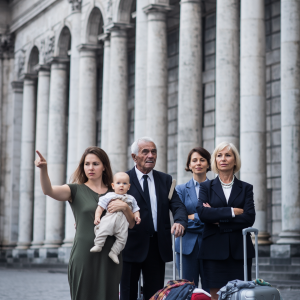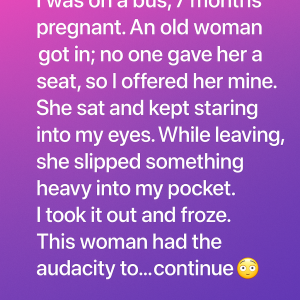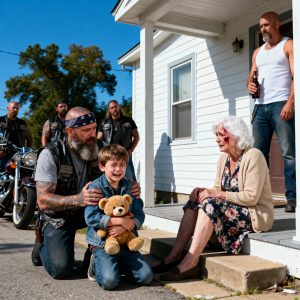It was just another quiet afternoon… until people began to slow their steps and stare. On the edge of the sidewalk stood a little girl — no more than six years old — dressed in a spotless white dress, her hair neatly combed, and her shoes without a speck of dirt.
She wasn’t crying. She wasn’t calling for help. She was simply… still.
Curious passersby stopped. A woman offered her a small bottle of water. Another reached for their phone, debating whether to call the authorities. For a long moment, the girl stayed silent — until she lifted her chin and whispered, barely audible:
“I heard… voices.”
The words felt like ice sliding down the spine of everyone who heard them.
Minutes later, a police sergeant arrived, his uniform slightly wrinkled, his expression soft but alert. He crouched down to her level and asked gently, “What’s your name? Where are your parents? Why are you out here alone?”
The girl’s wide eyes met his. Her voice trembled.
“The voices told me to leave the house.”
The sergeant’s tone dropped to a hush. “Voices?”
She nodded, clutching the hem of her dress. “I didn’t see them. I was hiding behind the door… Then I heard a bang. The voices said, ‘Go away. Or you will die.’”
She hesitated. “Sir… what does ‘die’ mean?”
The sergeant swallowed hard. Something deep in his gut told him this was no childish fantasy.
When he asked where she lived, she simply raised a trembling finger and pointed toward the last house at the end of the road.
From the outside, it looked perfectly ordinary — manicured lawn, drawn curtains, a front door left slightly ajar. But as the officer stepped inside, his heart pounded against his ribs.
The living room was quiet. Too quiet. And then he saw her — a woman sprawled across the floor, pale and motionless. The truth screamed without a sound.
Later, the investigation revealed the horror: in a moment of rage, the father had ended his wife’s life. The little girl had been hiding, frozen with fear, as her parents’ argument escalated into something she could never unhear.
The “voices” she spoke of were not strangers — they were her father’s voice, telling her to run, to leave, to not look back. His twisted way of sparing her the sight of what he had done.
But she already understood enough. She had felt the fear, the heartbreak, the loss. So she ran. Alone. In white. Until the world noticed.
Her survival wasn’t the result of her father’s protection — it was her own courage. A child’s quiet defiance against the darkness closing in.
That day, her whisper was more than a cry for help. It was a lifeline. And it was enough to bring her home to safety.





